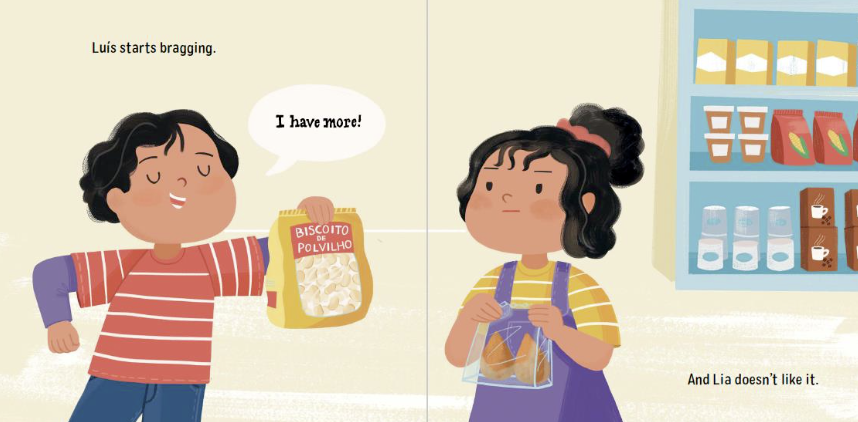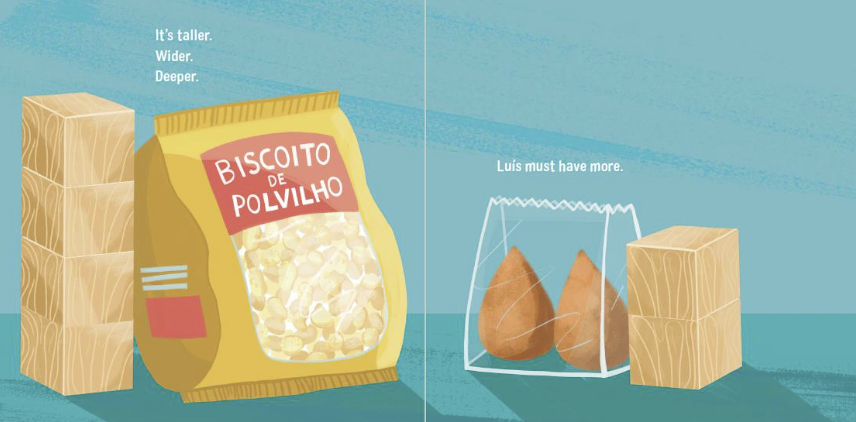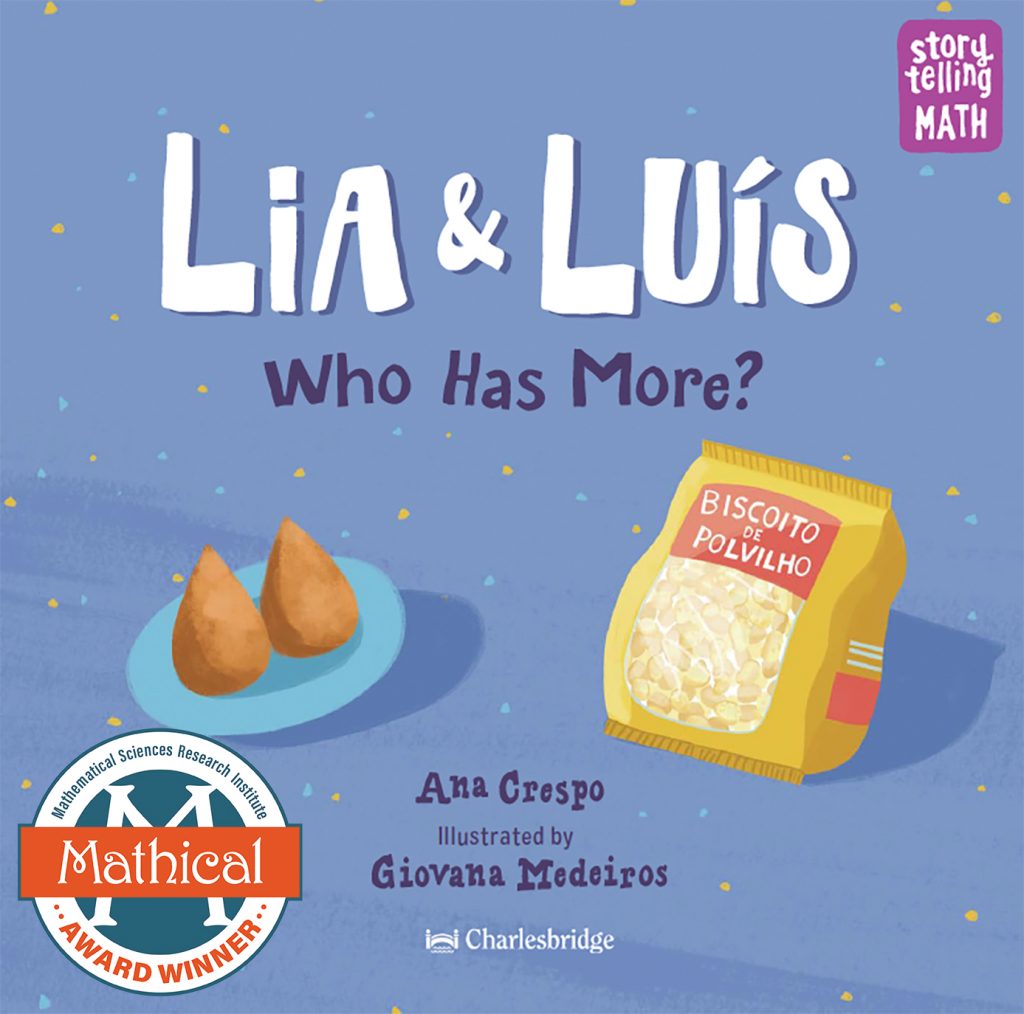Activity Summary
Use this storybook guide with the book “Lia & Luís: Who Has More?”
Many public libraries have this book. This is a Mathical Award winner book.
Reading guide
About the Story
Brother and sister go to the family store to get a snack, biscuits for Luís and croquettes for Lia. Luís brags that he has more: His bag is taller, wider, and deeper than Lia’s. But Lia points out that she has two croquettes and Luís has only one bag, so she has more. Luís counters that he has 100 biscuits and Lia has only two croquettes, so he has more. But Lia figures out another way to show that she has more. What is it? At the end, they figure out a way to share equally. Yum!

Words to Learn
MATH WORDS
taller, more, bigger, wider, deeper, lighter, heavier, weigh, equal
PORTUGUESE WORDS SPOKEN IN BRAZIL
Use the glossary and story clues to figure out words such as biscoito de polvilho (tapioca biscuits) and coxinhas de galena (chicken croquettes).
About the Math
The math in this book is about comparing and measuring. Your child can learn that:
- There are different ways to compare objects.
- They can compare by volume (capacity), number, and weight.
- Different methods of comparison produce different results.
- Objects can be more when measured one way but at the same time can be less when measured another way. For example, a brick can weigh more than a balloon but have less volume than the balloon.

Math Talk During Reading
- TALK ABOUT WHO HAS MORE
“Lia has two croquettes and Luís has only one bag of biscuits. Does Lia really have more than Luís?” - TALK ABOUT LIA’S THINKING
“Lia holds the croquettes and thinks. What is she thinking about? What is her solution?How does she know her croquettes are heavier than Luís’s biscuits?” - TALK ABOUT EQUAL
“How did Lia make the croquettes and biscuits equal? Were they also equal in number or in size?”
Try to come up with some of your own questions and comments, too!
Activity After Reading
- COMPARE IN DIFFERENT WAYS
For example, have children compare a loaf of bread and a jar of jelly. There is one loaf and one jar, so the number of objects is the same. But there are many pieces of bread and only one jar. The loaf is longer, deeper, and wider than the jar and therefore has greater capacity. But the jar weighs more than the loaf.
Download this activity
English version
Download the guide